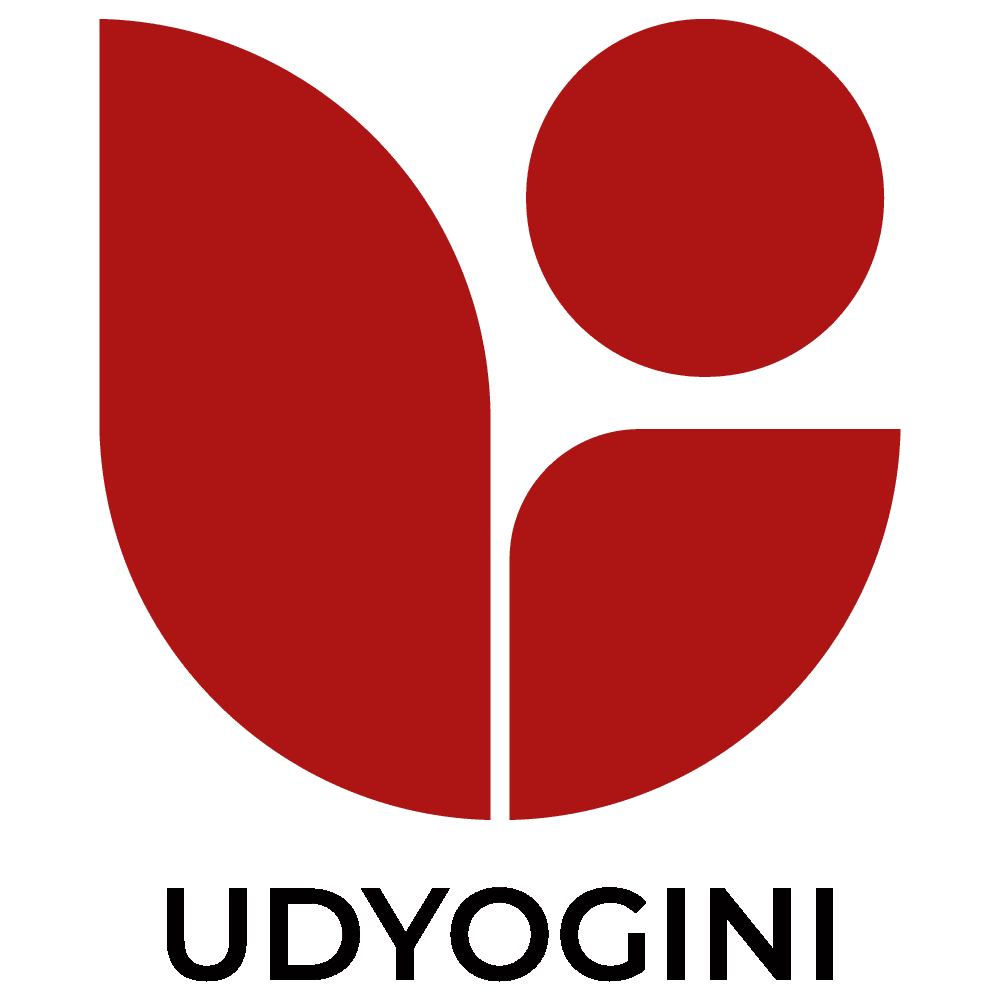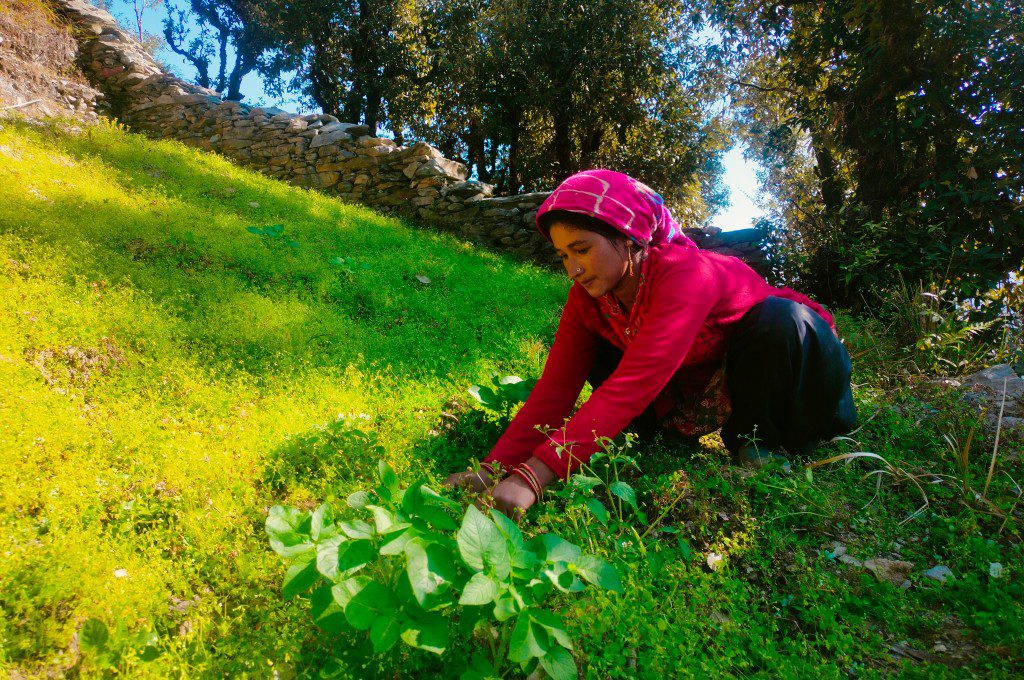The Story of Jasoda Devi Uttarakhand is what we have been thinking of and never imagined something like this would have happened if it wasn’t for her or her family. Just like that in a giffy she let me get out of her head and speedily into the well of being super emotional and self centered of certain things with support from NVIDIA in Urgam Village, Uttarakhand.
With support from NVIDIA, we designed a three-pronged strategy for working with the women in this village. They are often considered silent workers on the farm and have different vulnerabilities than men that limit their adaptive capacity. Optimising land-use patterns and livelihoods in mountain ‘niches’ (cultivable fallow land) and developing the Medicinal and Aromatic Plant (MAP) value chain is adopted with the vision of ecological restoration and reduction of pressure on the ecologically fragile system due to the unsustainable harvesting of medicinal plants. Improved resource use efficiency, socially equitable and gender-balanced economic growth, and the preservation of indigenous knowledge and cultural traditions are key to the MAP.
Urgam Village, located in the gorgeous Urgam Valley near Joshimath in Uttarakhand’s Chamoli district, is one of the 53 villages selected in the project ‘Sampada Se Samriddhi, supported by NVIDIA. Situated at an elevation of roughly 2100 metres, the village is surrounded by snow-capped peaks of the Garhwal Himalayas and is nestled among lush forests, farmlands, and apple orchards. Joshimath is a new implementation area for Udyogini for working with farmers. The area has earlier seen other NGOs for medicinal plant cultivation, but their involvement with the farmers has been limited only to providing saplings. The high-altitude location of the village was an important factor in selecting the village for cultivating the endangered species of Kutki (Picrorhiza kurroa). Some other factors, such as the awareness of villagers about medicinal and aromatic plants, the availability of cultivable wasteland, the decreasing return on investment on traditional crops such as paddy, kidney beans (rajma), finger millets (mandua), amaranth (chaulai), and potatoes, and thus the falling income levels, ushered Udyogini into selecting the village as an intervention area.
Jashoda Devi, Project Beneficiary
Jasoda Devi is a traditional farmer from Badginda Urgam village. She has three children to feed, but the decrease in crop production and falling prices of traditional crops have troubled her for many years. To augment her meagre income from agriculture, she has frequented the nearby bugyals (alpine meadows or pasture lands) to collect high-value medicinal plants per market demand. Even though she was aware of the impact of overharvesting from bugyal on the ecology, she says she can’t help, as a lack of money and other employment opportunities prevent her from fulfilling her basic needs. While selecting the beneficiaries under the programme, the intent of Jasoda Devi to safeguard the local ecosystem, the availability of 20 nali (1 acre) of cultivable wasteland, her ability to invest time and manpower in medicinal plant cultivation, and the need for additional income came up as important factors. So far, Udyogini has completed mobilisation meetings, training programmes, farmer exposure visits, and cultivation demonstrations of Kutki in the village. Through our efforts, Jasoda Devi has cultivated Kutki in three nalis to begin with. Following Udyogini’s training, exposure visit, and support, she has invested her savings in land preparation and Kutki cultivation.
Harvesting Kutki (Picrorhiza kurroa)
The cultivation of Kutki is estimated to produce roughly 60 kg of Kutki, fetching nearly INR 75,000 to 90,000 in additional income for her. The species would also protect her farm from animal attack and help in ecological restoration by reducing the need to harvest from the wild and utilise her cultivable wasteland. She intends to construct a nursery to propagate medicinal and aromatic plant (MAP) saplings with the extra income she will earn after the harvest to keep the MAP cultivation practises sustainable for others. Trusting another organisation with MAP cultivation was difficult for Jasoda Devi because other organisations used a targeted approach to medicinal plant cultivation only. Whereas Udyogini came with a holistic approach where the farmers were trained on activities essential for improved production, such as timely removal of weeds, mulching, irrigation, and harvesting. The next step for the Udyogini would be to include her in a collective, such as a women’s enterprise group, where spot trading of the produce will happen so that she does not have to go around selling the produce. Further, the farmers would also be included in the existing cooperative of Udyogini, Badri Kedar,’ where value addition and forward linkages would bring them additional income.
By working with farmers like Jasoda Devi, Udyogini hopes to raise farmers’ annual income by 30%, reduce medicinal plant harvesting from the wild by 10%, and reduce wild attacks on traditional crops by 70%, thereby establishing a medicinal and aromatic plant (MAP) supply chain in its intervention areas.


